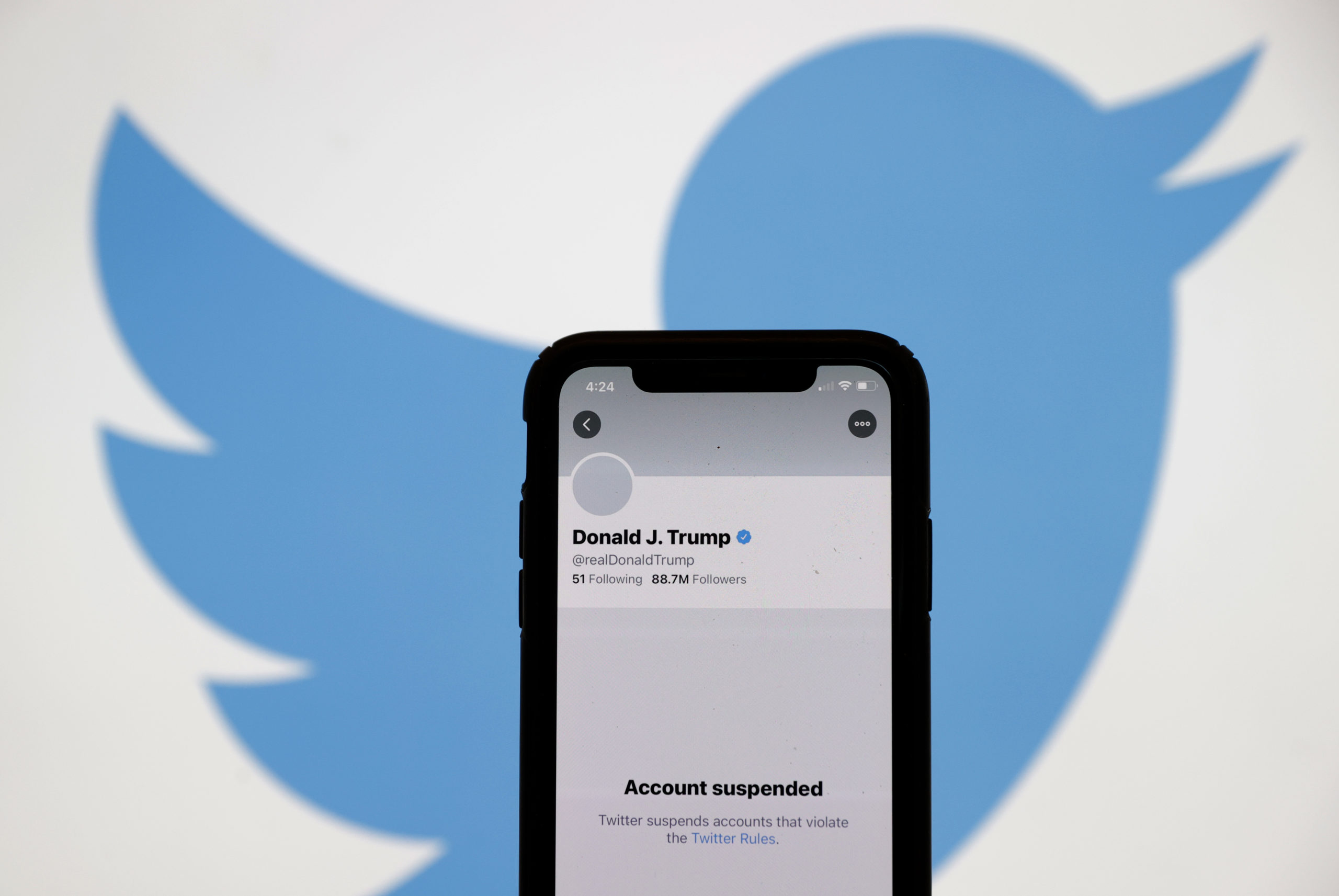

RECOMMENDED READING
The quite clearly collusive actions of the Big Tech giants, in recent days, accelerate even further the national reckoning that has been overdue at least since Big Tech’s coordinated “Pearl Harbor attack” against the nation’s fourth-largest newspaper on the precipice of the monumental recent presidential election. The actions represent an epochal escalation in the ruling class’s war against the “deplorable” half of the country. They prove the prescience of those, like Tucker Carlson, who have warned that the greatest 21st-century threats to our freedom often come from the private, and not public, sector.
Most distressingly, the concerted actions of the Big Tech cartel since last Wednesday’s U.S. Capitol storming, encapsulated by but hardly limited to the “permanent” suspension of the president of the United States from his favorite social media platform, forebode the imminent arrival of a regime-level politics that will further tear asunder a nation already teetering on the brink. They indicate that the regime is insecure about its tenuous grasp on power, and is willing and eager to lash out in defense of its power against all perceived threats.
The 2020 presidential election represented, in all likelihood, the first true regime election since the 1860s. The incumbent ticket, for all its flaws, represented the only viable choice for voters seeking to preserve and restore the rudimentary political characteristics of America’s Founding-era regime. The challenging ticket, by contrast, was the ticket of the multifaceted public/private-sector ruling class—neoliberal in domestic and foreign policy, supercilious in demeanor, censorious of “wrongthink” dissidents, “woke” in linguistics, intersectional in hierarchically elevating group “victimization” over Genesis 1:27-rooted notions of meritocracy and individual self-worth, and, above all, dedicated to the use of all available levers of power to reward friends and punish enemies.
The actions of the ruling class since last Wednesday’s shameful Capitol siege suggest that the new “woke,” intersectional, neoliberal regime, dominated as it is by private sector oligarchs who exercise monopolistic power and dictate the terms for our 21st-century town square functional equivalent, intends to exercise regime-level political power in service of its priorities and self-preservation. The exercise of this political power will be “illiberal,” in the truest sense of that often-bandied about term—Silicon Valley oligarchs and their bipartisan apologists may hide behind the thin dichotomous guise of “state” versus “private” actions, but anyone with a decent pair of eyes ought to be able to see that Big Tech is, at this juncture, but a particularly high-visibility appendage of the China-style “state capitalism” order that increasingly defines America in the year 2021. Big Tech already has, in other words, become a de facto arm of the neoliberal imperium. Does anyone really think Mark Zuckerberg or Jack Dorsey would ever cross Joe Biden and Kamala Harris?
There are myriad tangible implications of this, as it pertains to Big Tech regulation itself. It is highly likely that, in coming years, the median Republican elected official position will move beyond support for mere antitrust enforcement and Section 230 repeal, and inch closer toward support for “common carrier” regulation or outright nationalization. But on a less tangible level, the first term of the Biden-Harris administration, egged on by a radicalized leftist grassroots and now buttressed by a Democratic Senate, will be characterized by the escalating rhetoric and nascent political power utilization of a regime seeking to quash any and all dissent. The new regime will seek, through whatever means necessary, to undo and discredit the achievements and advancements of the past four years. In order to successfully undo and discredit—not to mention implement its own affirmative agenda—it will work diligently, through word and deed, to disenfranchise and marginalize all perceived threats and “enemies.” It will do anything and everything to retain its status and protect its lofty, ill-gotten perch. Post-Capitol storming, moreover, the new regime will always err on the side of overreaction.
The defining question of our national politics for the next four years will not be whether one supports the United States’ constitutional order. Nor will the defining question of our national politics be whether one supports any particular policy in any specific area of our public life. Rather, the defining question of our national politics—and, by extension, the defining prism through which the actions of our “private”-sector-adjacent institutional appendages to that ruling political apparatus must be understood—will be whether one is “loyal” to the regime and thus ought to be rewarded, or is an “enemy” of the regime and thus must be punished.
At the present time, the United States is on a path that will not end well. We are heading toward a dark place.
Recommended Reading
What To Do After Big Tech’s Pearl Harbor Attack on the New York Post
As of this writing, the New York Post, the nation’s fourth-largest newspaper, has been locked out of its own Twitter account for almost two weeks.
An Early Conservative Victory in the War on Big Tech
American Compass research director Wells King discusses a promising conservative bill to rein in Big Tech’s monopoly power.
A GOP Reckoning? If Trump Loses His Reelection Bid, the Party May Face an Identity Crisis
Maureen Groppe discusses where the Republican Party will go after the 2020 election if Trump loses, noting American Compass’s key role in defining “post-Trumpism.”











